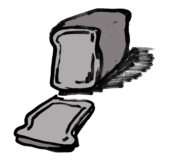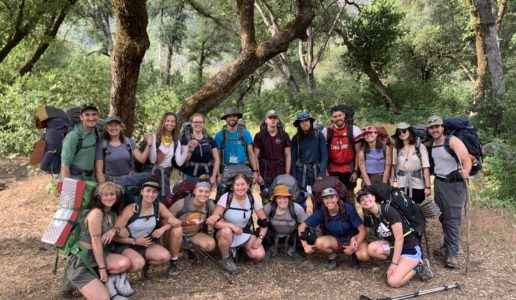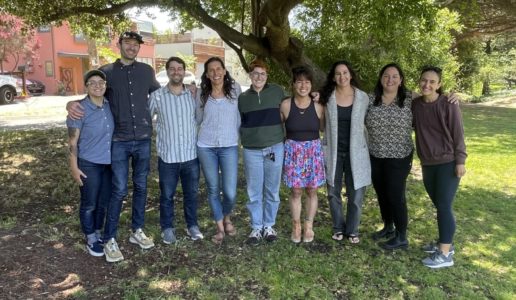Tawonga Tidbit: The Motzi, Explained
By: Meg Adler
At Camp Tawonga, the Motzi is a blessing we say before eating any meal – technically one that includes bread – and is a staple in the Dining Hall. It’s a short little blessing but has a lot of meaning. Here is a quick 101 on this Jewish expression of gratitude:
To start, listen to the Motzi.
Now, for the breakdown:
![]()
Baruch atah Adonai
One Possible Translation: Blessed are you, Adonai (one of the many names for G-d in the Torah)
What Does This Mean? We start so many blessings with this opening; basically it means we, the readers, are saying how blessed G-d is. Adonai is only one name for G-d. Some people call G-d “Source of everything” or “HaShem (which means “The Name”).” The concept of G-d is so big and unspeakable, no word will ever fully work to express it.
Eloheinu Melech ha-olam
One Possible Translation: Our G-d, Ruler (or King) of the Universe
What Does This Mean? A few of these words are problematic. First, Melech technically means “king” which implies a human and male quality to G-d. In ancient times, kings were thought to be directly connected to G-d, so it does make sense that the language says “king” – it was the most “G-d-like” thing around! But, today, many people say Ruach instead, which means “spirit” or other words that connote divine beings!
Finally, ha-olam can also be interpreted as “eternity” or something in a temporal dimension (instead of a spatial one, like “universe”). This would mean that G-d is presiding over all time. Think about it, time is the one dimension humans cannot “conquer.” Time is the ultimate infinity.
Hamotzi lechem min ha-aretz

One Possible Translation: Who brings forth bread from the Earth
What Does This Mean? Hamotzi comes from the word yatza, which, when used in this way means to “bring forth.” But, do we bring forth bread from the Earth? No! We bring forth grain, and then people make it into bread. Through its word choice, this line shows gratitude for both the bounty of the ground and the hard work of the people that turned that grain into bread.
If expressing gratitude for the food you eat is not yet in your practice and you’d like it to be, consider saying the Motzi the next time you sit down for a meal with bread (or even without bread!). B’tei avon! (Bon appetit!)

Meg Adler is Camp Tawonga’s Assistant Director of Jewish Life and Learning and directs our Bar, Bat & B’nai Mitzvah Program.
Tawonga Tidbit
This summer, while we dream of being in the Sierra Mountains on our beautiful site, our Tawonga Tidbit blog series will bring you different ways to bring the spirit of Camp into your homes. We hope you enjoy! You can also join Tawonga at Home virtual programming – explore here.

